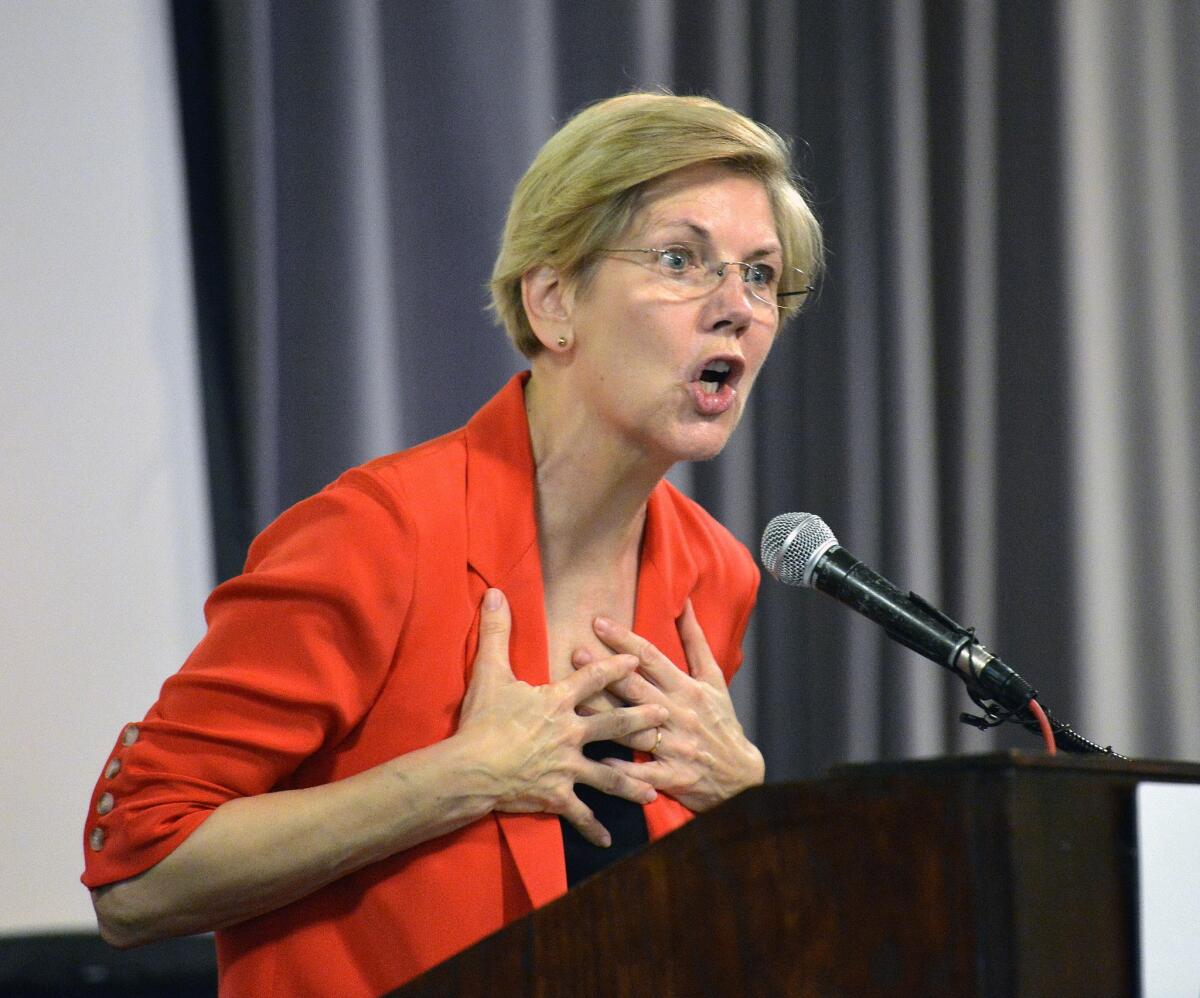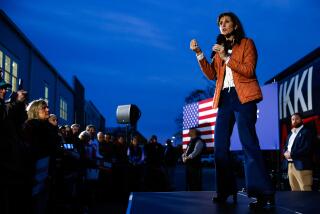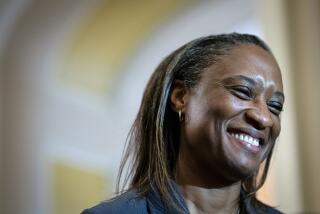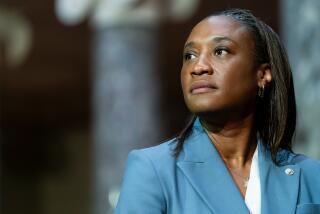With her call to action, Warren cuts sharp contrast to Clinton

As the 2016 presidential race approaches, Massachusetts Sen. Elizabeth Warren may be entering a different phase of her career — one in which she’s beating back lots of unwanted attention.
On Friday morning in Detroit, a crowd of liberal activists roared, “Run, Liz, run! Run, Liz, run!” as she took the stage to address the Netroots Nation conference.
“Sit down. Come on, let’s get started. Sit down,” Warren said, attempting to quiet the crowd with the tone of an appreciative schoolteacher.
Warren, a former law professor, then delivered the kind of call to action that has endeared her to her fans, who are actively trying to draft her to run for president through the Ready for Warren organization. She cited her experience trying to set up the Consumer Financial Protection Bureau at the behest of President Obama after the financial crash as an example of how ideas can triumph if enough people get involved.
As she began looking for ways to prevent banks from “cheating” families seeking mortgages and credit cards, she said, experts told her she would lose, and the banks spent “more than a million a day for more than year lobbying against financial reforms,” she said.
“We fought back and we won. That’s what we did,” Warren said, uttering a mantra that she would repeat dozens of times during Friday’s speech. “We won because you and a zillion other people across this country got in the fight. We won because you got out there. You broke news; you wrote opinion pieces; you organized petitions; you built coalitions; you kept that idea alive. You called out sleazy lobbyists and cowardly politicians. You said, we the people will have this agency and you are the ones who won.”
Warren noted that in its third year, the Consumer Financial Protection Bureau has forced financial institutions to return more than $4 billion to consumers. She argued that the bureau was evidence of how democracy can work in the 21st century.
“It is proof that if we push back against the biggest, strongest, most ruthless lobbying effort in the country — that if we push back hard, we can win,” Warren said.
“We have united our voices and when we unite our voices we can win,” she said, citing her 2012 run for the Massachusetts Senate. (Ironically, that race was made possible after a permanent role for her as head of the consumer bureau was blocked by opposition from Republicans in Congress and business lobbyists.)
Warren, who has repeatedly said she will not run for president in 2016, laid out the broad outlines of her agenda — urging the activists in the audience to fight income inequality and take on wealthy and powerful interests who ensure that “every rule tilts in their favor,” while “everyone else just gets left behind.”
With a note of outrage, she pointed out that if a youth is caught with a few ounces of pot, he or she can go to jail, but a big bank “launders drug money and no one gets arrested. The game is rigged and it isn’t right. It’s rigged,” she said defiantly, as the crowd thundered its approval.
Warren has highlighted those issues throughout her career, but the themes of her speech offered a striking contrast to recent appearances by Hillary Clinton, who will decide whether she is running for president by early next year.
In comfortable settings that often involve a moderator and an armchair, Clinton frequently talks about her concerns for the younger generation and their struggle to find jobs or pay for college. But she has yet to outline a fist-pumping cause or coherent argument that would define a run for president. While Warren can fire up crowds with her populist call to rally against the powerful, Clinton is viewed by many Warren supporters as too close to Wall Street with a career that has been built by a proximity to power.
In an interview with PBS’ Charlie Rose this week, Clinton was asked what one big idea she would carry forward if she decides to run for president.
“We would have to make a campaign about what we would do,” Clinton responded. “You have to run a very specific campaign that talks about the changes you want to make in order to tackle growth, which is the handmaiden of inequality.”
Even Clinton’s advisors have acknowledged that she improved as a candidate during her first presidential run in 2008 when she faced a dynamic competitor in Barack Obama. Polls show now that the vast majority of liberals back a Clinton run in 2016, but even if Warren remains out of the race, her supporters hope to pressure Clinton to more forcefully plead their case.
Twitter: @MaeveReston
More to Read
Start your day right
Sign up for Essential California for news, features and recommendations from the L.A. Times and beyond in your inbox six days a week.
You may occasionally receive promotional content from the Los Angeles Times.







